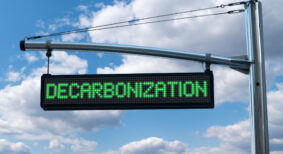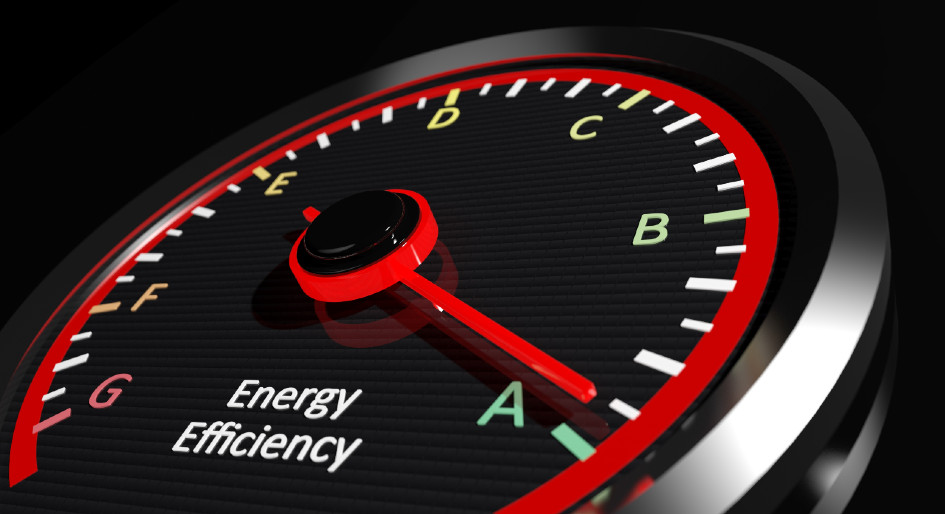Raw performance metrics sink Canada’s score in a newly released comparison of energy efficiency in 25 of the world’s highest consuming countries. Canada has slipped to 13th, and the bottom half of the field, in the American Council for an Energy-Efficient Economy’s (ACEEE) fifth assessment of policy intent and energy-use outcomes related to buildings, industry and transportation, as well as some broader investment and conservation activities.
This year’s results come after a four-year interval in what has traditionally been a biennial benchmarking exercise, and bring some jostling in the standings. France, with a score of 74.5 out of 100, takes the top spot, moving up from third in 2018.
Three other countries ranked in the top five — the United Kingdom, Germany and Italy — are likewise carryovers from 2018, but are all now slotted in different positions, with Italy notably falling from a previous first-place tie down to fifth. The Netherlands is a new arrival, jumping from 7th in 2018 to a 3rd place tie with Germany this year.
“Top-scoring countries, though far from perfect, offer ideas for what other countries can do to increase their energy security, cut emissions and save money,” suggests Sagarika Subramanian, the report’s lead author and a senior research analyst with ACEEE. “Notably, they’re rapidly scaling purchases of electric vehicles by offering incentives, and France and the Netherlands are cutting energy waste by adopting building performance standards.”
In citing some exemplary efforts, the ACEEE commends the Netherlands for: its ‘almost energy neutral’ criteria for new construction; prohibition on connecting new homes to the gas grid; and pending requirement (as of 2026) that replacement heating systems for existing homes be either all-electric or hybrid heat pumps. Germany is highlighted for “robust government funding such as tax incentives and loan programs” for building retrofits, low-carbon heating and cooling options and electric vehicles; and Japan and UK earn praise for programs targeting industry.
France and Netherlands boast improved scores this year, with the Netherlands registering an impressive gain of 6.5 points to reach 71.5. Alternatively, the remainder of the top 5 experienced slight to larger slips, ranging from 0.5 points in the UK’s case to a 7-point slide for Italy, to rest at 68.5.
Canada loses ground, but outscores the mean average
That downward trajectory also plays out across the entire survey base, composed of the 25 countries which account for 82 per cent worldwide energy consumption and more than 80 per cent of global gross domestic product (GDP). Despite a 6-point drop from 2018 down to a failing grade of 49.5, Canada manages to surpass the 2022 mean average of 48.5 — which also marks a decline from the 2018 mean average of 51.
Aside from the top 5, Canada trails Spain, Japan, China, Taiwan, the United States, South Korea and Poland. It outscores Mexico, Turkey, India, Indonesia, Australia, Brazil, Thailand, Egypt, Russia, Saudi Arabia, South Africa and the United Arab Emirates.
Solely from a policy perspective, Canada ranks seventh, having attained 41 of a possible 60 points across 23 measures. Yet, in earning just 8.5 of the possible 40 performance points, Canada ties with the United Arab Emirates in second-last place, besting only Russia, which bottoms out the category with 7 points.
Scoring system not advantageous to large and cold nations
Arguably, the weighting of the scoring in the smaller complement of 13 performance metrics is not advantageous when applied to Canada’s vast geography and cold climate, and compared against more temperate and compact countries. Although Canada earned 1.5 out of a possible 2 points for the penetration of energy services companies (ESCOs) into its market, and 0.5 out of 1 point for its installed combined heat and power capacity, calculations skew negatively for the majority of the metrics.
For example, calculations for residential energy-use intensity are derived from tallying the scores assigned to two metrics: total energy use per area of built space; and total energy use per capita. Calculations for commercial energy-use intensity are also based on end energy use per floor area, as well as energy use per dollar of service sector GDP. Scores of 0 to 1.5 are then assigned based on four gradients of energy use.
Thus, Canada attains just 0.5 of six possible points for energy-use intensity in the buildings sector, while Mexico scores 6 and Brazil scores 5.5. The United Arab Emirates, Canada’s match near the bottom of the performance measure rankings, also outscores it with 1.5 points. However, Canada does outperform Russia, which scored no points for these metrics.
“Although we recognize that many variables affect energy use — including wealth, climate, geography, economic structure, and demography — we largely avoided adjusting the data to reflect those impacts. Because our goal was to evaluate energy use across countries, we chose to present the data in the least processed form that allows for meaningful comparison,” the ACEEE report advises.
Canada scores two out of the six possible points for reduction in national energy intensity between 2013 and 2018. That’s the ratio of energy use to economic output, and is calculated based on the total primary energy consumed per dollar of market-exchange-rate GDP. Canada registered a 6.5 per cent reduction for the period to rank among seven countries earning two points for reductions in the range of 4 to 6.9 per cent.
Only China received the full six points for a reduction greater than 20 per cent, coming in at 22.7 per cent. Eight countries — the UK, Poland, the Netherlands, Egypt, Taiwan, India, France and Japan — scored 5 points for reductions in the 11 to 19.9 per cent range. The U.S. garnered 3 points for its 8.1 per cent reduction, while Russia and Brazil were blanked for their respective energy intensity increases of 2.7 and 3.2 per cent.
Full marks in some policy categories
Looking to where Canada scores well, it receives full marks for: spending on energy efficiency, including research, design and development (RD&D); setting energy savings and climate goals; and data availability. Within the buildings sector, it also ranks highly for commercial and residential building codes, building retrofit policies, and appliance and equipment standards, but has more room to improve at building ratings and disclosure.
Regardless of countries’ rankings, opportunities for improvement underpin much of the ACEEE’s messaging as it emphasizes the challenges that lie ahead to meet global targets for reducing greenhouse gas (GHG) emissions and the cost-effective path energy efficiency presents for doing so. In moderating the growth of energy demand, energy efficiency also defers required investment in new generation and frees up capital that can be diverted to low-carbon infrastructures and technologies.
“Our results indicate that all economies evaluated in this report still lag behind where they need to be,” the 2022 scorecard report states. “Governments that encourage investment in energy efficiency and implement policies to support energy efficiency save citizens money, create jobs, and improve public health by decreasing pollution. These benefits are especially important as the world continues to deal with the impacts of a global health crisis. Yet, energy efficiency remains massively underutilized globally despite its proven multiple benefits and its potential to achieve significant reductions in emissions by 2040.”






